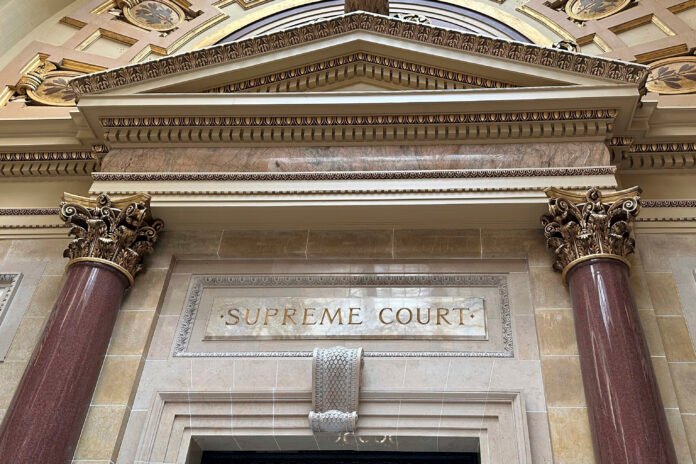In a landmark moment for reproductive rights, the Wisconsin Supreme Court decision on Wednesday struck down the state’s near-total abortion ban. The 4-3 ruling reversed the enforcement of a law dating back to 1849. This controversial decision, delivered by the newly empowered liberal majority, reshapes abortion access across the state.
The Wisconsin Supreme Court decision followed a bitterly partisan divide. All four liberal justices voted in favor of overturning the ban. The three conservative justices dissented, signaling deep ideological differences on the bench. Justice Rebecca Dallet, writing for the majority, emphasized that modern abortion regulations had already replaced the outdated 1849 statute. According to her, newer laws clearly governed abortion procedures up to around 20 weeks of pregnancy.
Justice Dallet stated that comprehensive abortion laws enacted over the last five decades now regulate who can perform abortions, under what conditions, and where. She argued that these modern laws were intended to substitute for the 176-year-old statute.
Meanwhile, conservative Justice Annette Ziegler offered a sharp dissent. She accused the liberal majority of making the decision based on personal beliefs rather than legal principles. She called the ruling a “jaw-dropping exercise of judicial will.”
The case came to prominence after the U.S. Supreme Court overturned Roe v. Wade in 2022. That federal decision reignited efforts in Wisconsin to revive the dormant abortion ban. The old law had criminalized almost all abortions, even in cases of rape, incest, or health risks to the mother.
However, pressure mounted for the state to eliminate the law completely. Despite its recent inactivity, some Republican leaders pushed for the ban’s continued existence. The Wisconsin Supreme Court decision now firmly shuts the door on that possibility.
This ruling also highlights the impact of Wisconsin’s 2023 judicial election. That race, which cost over $100 million, was the most expensive judicial contest in U.S. history. Liberal candidate Susan Crawford defeated conservative Brad Schimel, who had the backing of Donald Trump and Elon Musk. Musk contributed millions directly and through super PACs.
Moreover, Governor Tony Evers celebrated the court’s decision as a victory for healthcare freedom. According to him, it protects the rights of women and families to make private medical choices. Furthermore, Evers reaffirmed his commitment to reproductive freedom. He emphasized that personal healthcare decisions belong to individuals, not politicians or judges.
As a result, this moment marks a pivotal shift in the state’s legal landscape. With this ruling, Wisconsin reclaims autonomy over abortion rights after years of legal uncertainty.
For more political updates visit DC Brief.


